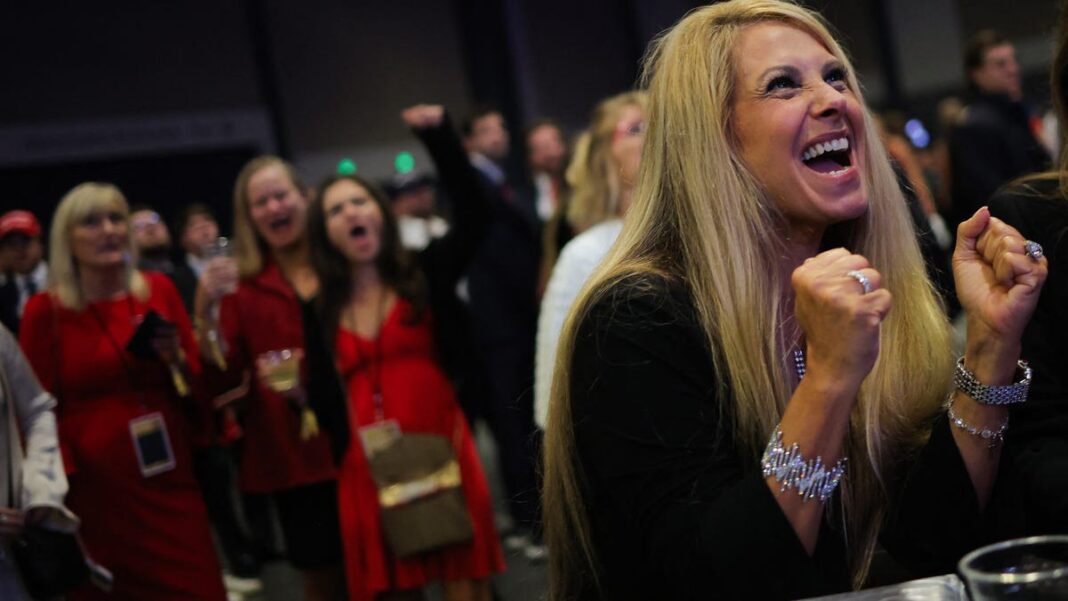Opinion: Kamala Harris lost because she wasn’t a strong candidate. Don’t blame white women for her defeat.
The way Kamala Harris and her supporters spoke to conservative women during the campaign was upsetting – and rightly so.
Similar to the situation in 2016, I chose not to vote for the top female candidate on Tuesday.
This isn’t because I object to having a woman president – I fully support that idea.
However, I won’t automatically support a female candidate based solely on her gender or any other unchangeable trait. I’m seeking a candidate who aligns with my values and beliefs.
Vice President Kamala Harris, who unexpectedly replaced President Joe Biden at the last minute, turned out to be an uninspiring and weak candidate.
And many voters recognized this, including a notable number of white women.
In what many anticipated to be a close election, Donald Trump decisively beat Harris.
He won because he was a more effective candidate, addressing the key issues voters cared about. Simple as that.
Still, the narrative claiming Harris’ defeat must be attributed to some sinister force, like deep-rooted racism or sexism in America, continues to circulate. Some on the left have even suggested that many white women lacked the courage to resist male influence.
To that, I say: absolutely not.
Democrats’ approach to winning conservative women? Be as patronizing as possible.
It seems Democrats have not learned anything from Hillary Clinton’s defeat in 2016. They assumed all women would support Clinton simply for being a woman, but that was not the case, and white women played a significant role in Trump’s initial victory, just as they did now.
Clinton never accepted that many women chose not to back her and expressed her frustration in her book “What Happened.”
While Harris’ gender played a lesser role in her campaign, the subtleties were still present.
In the campaign’s closing days, Harris and her advocates upset many women by talking down to conservative voters.
For example, an advertisement featuring actress Julia Roberts depicted two white women who needed to vote for Harris in secret so they wouldn’t anger their husbands.
“In a place where women can choose, you can vote however you like, and no one will know,” Roberts states in the ad.
At the conclusion, one husband asks his wife, “Did you make the right choice?”
She replies, “Sure did, honey.”
This is downright offensive.
But this is how Democrats and the media have often shown conservative women – as if they are caught in a dystopian scenario where they must deceive their husbands to vote freely.
Leading up to the election, billionaire Mark Cuban, a backer of Harris, remarked: “I genuinely believe women will be the ones who decide this election for the vice president. I’m confident they won’t just follow their husbands’ lead. They will make the right choice and vote for her.”
Maybe, just maybe, those opposed to Trump and liberal commentators will finally grasp that condescension does not foster support.
The gender gap wasn’t as pronounced as anticipated. Don’t attribute it to sexism.
Although, I wouldn’t hold my breath.
During MSNBC’s election coverage, host Joy Reid instinctively criticized white women for not supporting Harris in North Carolina.
“Black voters turned out for Kamala Harris,” she stated. “White women did not.”
But whose responsibility is that?
Just like men, women consider various factors when voting, including the economy, safety, and immigration, and Harris did not instill confidence that she could address these significant issues. I know several women who were unwilling to support Harris due to her position on women’s sports and privacy rights.
It seemed that she believed that repeatedly stating “abortion rights,” along with her gender, would be enough to attract women to her side.
Overall, more women voted for Harris than for Trump, yet white women diverged from this trend: 53% cast their votes for Trump, while only 45% supported Harris. This marks an increase in support for Trump compared to eight years ago.
If I were to advise the next Democratic presidential candidate, I would suggest they stop showing obvious disregard for a significant voter demographic that is more than capable of making their own decisions.

